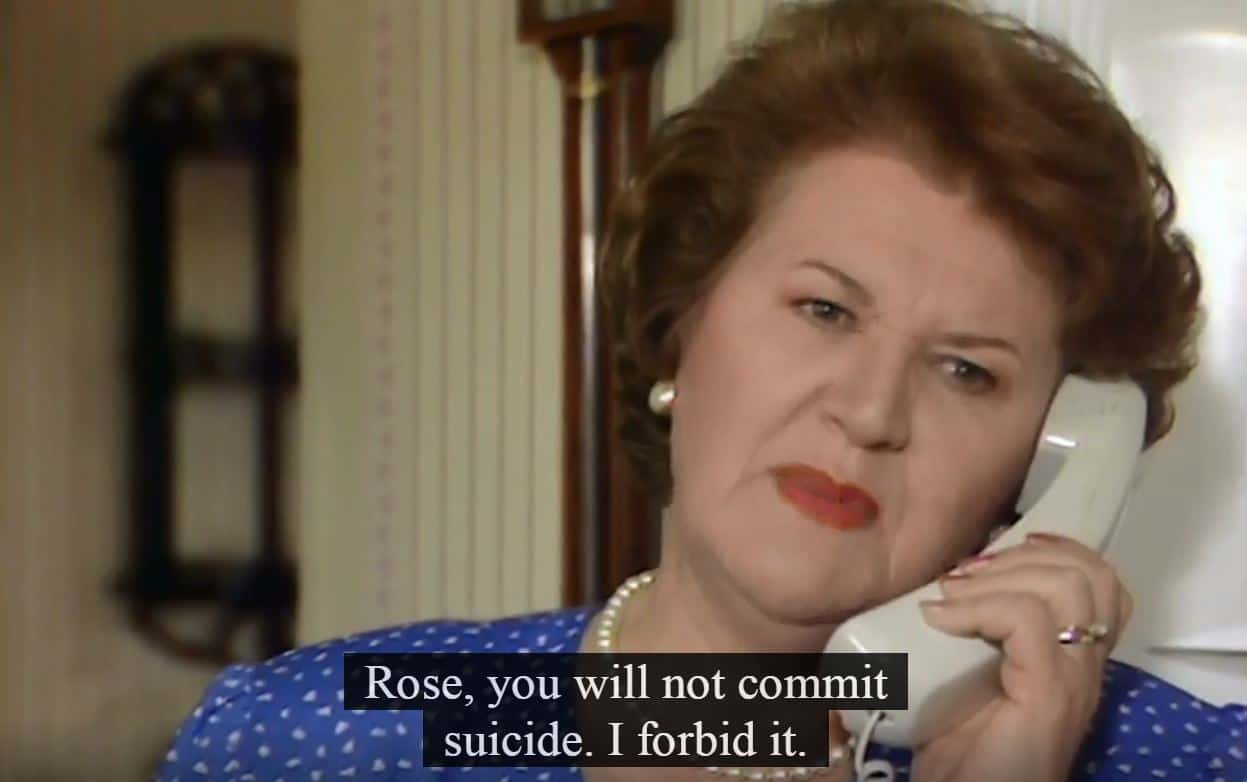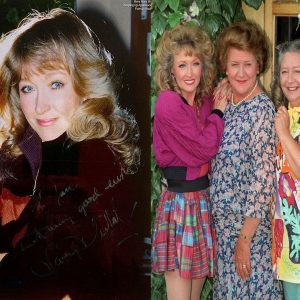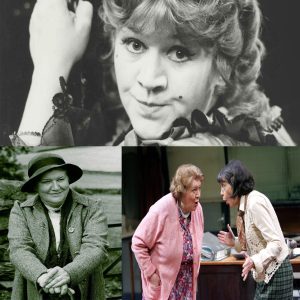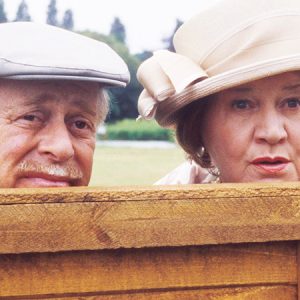Royal Doulton and Ruffled Egos: The Enduring Legacy of Hyacinth Bucket and Her Most Quotable Moments
In the grand pantheon of British sitcom royalty, few characters shine with the polished, pearlescent sheen of Hyacinth Bucket—pronounced “Bouquet,” if you please. The heroine (or anti-heroine, depending on your perspective) of the beloved BBC comedy Keeping Up Appearances, Hyacinth is one of television’s most unforgettable figures: equal parts tyrant and tragicomic figure, armed with a Royal Doulton teacup in one hand and a well-worn sense of delusion in the other.
Since its debut in 1990, Keeping Up Appearances has delighted audiences worldwide with its biting satire of class aspiration and social climbing. Created by Roy Clarke and brought to vivid life by the peerless Patricia Routledge, the series chronicled Hyacinth’s tireless crusade to claw her way into the upper echelons of English society—whether they liked it or not. And along the way, she delivered some of the most iconic, side-splittingly pretentious lines in television history.
Here, we revisit some of the top Hyacinth Bucket quotes that not only defined the character but helped etch Keeping Up Appearances into the annals of sitcom legend.
“No, you cannot have a number 24, nor a double portion of 37.”
Straight from the show’s very first episode, Daddy’s Accident, this line encapsulates Hyacinth’s obsession with image—and her horror at even the faintest association with anything mundane. When someone mistakenly tries to order Chinese food through her “private slimline white telephone,” Hyacinth is scandalized.

“This is a private slimline white telephone with no connection whatsoever to any business or trade. Especially not one of foreign extraction!”
It’s a moment of perfect comedy timing and character exposition. From the beginning, we see Hyacinth is less concerned with hospitality and more concerned with maintaining the illusion of grandeur.
“Rose, you will not commit suicide. I forbid it!”
From The New Vicar, this line strikes a delicate, controversial chord. Rose, Hyacinth’s romantically impulsive sister, is prone to dramatic declarations. Hyacinth’s response—devoid of empathy, full of control—reveals her true priority: public perception over personal concern.
It’s a moment that walks the tightrope between comedy and discomfort, offering a glimpse into Hyacinth’s desperate attempts to suppress anything that could tarnish her reputation. In today’s light, it’s jarring—but intentionally so. The line isn’t meant to make us laugh at mental health; it’s meant to highlight the absurdity of Hyacinth’s ego-centric worldview.
“Elizabeth, if you could pass round my Royal Doulton with the hand-painted periwinkles.”
One cannot speak of Hyacinth without mentioning her beloved china. In fact, her constant invocation of the “Royal Doulton with the hand-painted periwinkles” (actually based on the Braganza pattern) is practically a mantra.
In The New Vicar, she trots it out with glee—more to impress than to serve. It’s not tea without drama, nor a social gathering without at least one trembling cup in Elizabeth’s perpetually nervous hands. The cup is not a mere dish; it is a symbol of Hyacinth’s imagined nobility.
“Sheridan deserves a father full of executive stress, wearing a bow tie.”
In The Charity Shop, Hyacinth’s husband Richard becomes the unwitting victim of her social ambition once again. She worries aloud about his lack of promotional success—and suggests it might all come down to the absence of a bow tie.
Here, Hyacinth’s delusion turns poetic. Her son Sheridan, who is perpetually “studying” (and subtly implied to be more interested in his male friends than any form of academia), is never seen but frequently idolized. Her imagined future for him—complete with executive stress—tells us more about her than it does about Sheridan.
“I hope you’re not going to spoil things with lower middle-class humour.”
Hyacinth’s disdain for anything—or anyone—remotely “common” is a running gag, and in Driving Mrs. Fortescue, it reaches full throttle. In this episode, Hyacinth volunteers herself and Richard to chauffeur a grumpy aristocrat, clearly hoping for social elevation by association.
Naturally, everything goes wrong. Yet Hyacinth remains oblivious, concerned only with maintaining a fragile facade of refinement. Her superiority complex is both her sword and her downfall.
“I once caught Richard playing with a frisbee…”
In Problems with Relatives, Hyacinth recalls with suspicion a time when Richard claimed he “found” a frisbee. The horror! Hyacinth’s concern isn’t about the toy—it’s about the implication that her husband could have actively purchased something so embarrassingly pedestrian.
This line brilliantly underscores her disconnection from reality, and her obsession with maintaining a fantasy lifestyle that neither her income nor family can support.
“Now kindly clear this line! There are people of substance in this community…”
In Singing for Emmet, we see once again Hyacinth’s possessiveness over her phone—her lifeline to imagined high society. She scolds family members and neighbors alike for using “her” line, convinced that people of “substance” may be queuing to call her at any moment.
In Hyacinth’s world, every phone ring is an opportunity to prove her relevance. It’s this desperation for importance that keeps the audience laughing—and cringing—in equal measure.
“I’ve got Elizabeth and Emmet here… You remember Elizabeth. Her husband works abroad… one of those Arab countries. She drops things.”
Perhaps no quote better demonstrates Hyacinth’s talent for reducing people to caricatures than this one from The Toy Store. She boils Elizabeth down to a nervous tea-spiller and Emmet to an irrelevant tag-along. Her tone is patronizing, her summary dismissive, and her accuracy beside the point.
This moment captures Hyacinth’s uniquely destructive form of socialization—where even friends are props in her self-created drama.
“How fares the church worldwide then, vicar? For instance, what is the missionary position in China these days?”
And then there are those rare moments when Hyacinth’s attempts at elegance take a hilariously awkward turn. In A Picnic for Daddy, she attempts to engage in intellectual, global discourse… only to inadvertently lob one of the most scandalously funny double entendres in the series.
It’s classic Hyacinth: attempting to soar intellectually, only to crash with comedic brilliance.
“Impulsive Daddy! I hope he’s not going to drive at speeds incompatible with my cut-glass condiment set.”
Even as chaos erupts, Hyacinth’s thoughts are never far from her fragile decor. In the same episode, Daddy has gone missing—again—and taken her tuna mayonnaise with him. But it’s the condiment set that commands her concern. Crystal first, family second.
The Lasting Legacy
More than three decades since her debut, Hyacinth Bucket remains a beacon of comedic genius. Her endless efforts to climb the social ladder—despite being weighed down by reality—are as relevant as ever in a world obsessed with appearances.
Her quotes, dripping with snobbery and unwitting irony, continue to resonate with new generations discovering the series through streaming. In Hyacinth, we see a timeless truth: no matter how hard we try to curate the perfect image, reality—and comedy—always has the final say.





